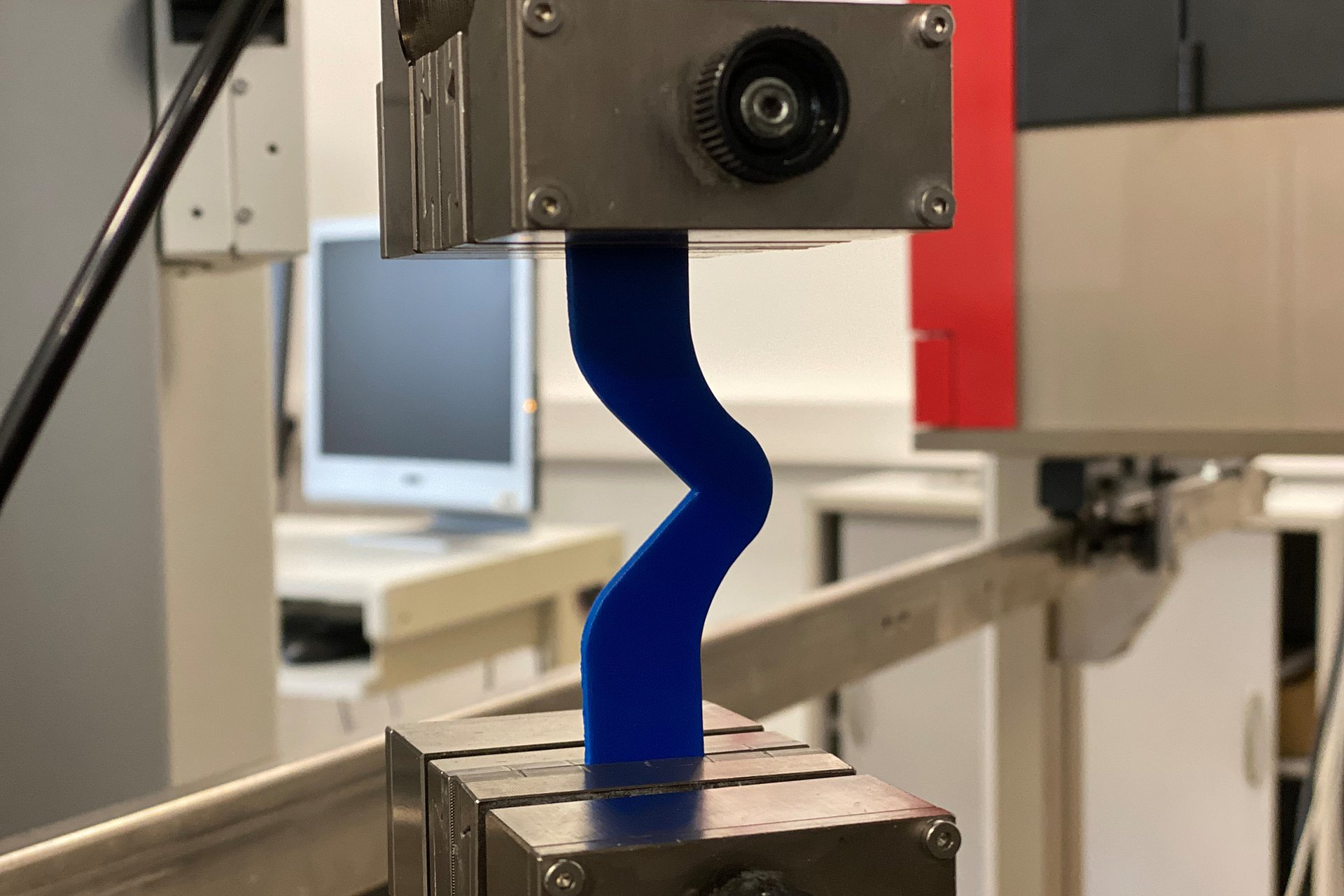Tear test on elastomers or films
Elastomers
The tensile strength of elastomers is determined using a universal testing machine on Trouser specimens. The tensile strength Ts is often also referred to as tear resistance and characterises the resistance that an elastomer material offers to the further tearing of an existing tear or a cut. According to DIN ISO 34-1, different geometrically shaped test specimens are permissible for the test.
The tear test contains the recording and evaluation of force-traverse path diagrams. Depending on the characteristics of the tear propagation process, the evaluation is carried out with regard to the determination of the maximum force Fmax or the median of the force Fmed.
Films
A proven method for characterising the tear behaviour of films is the determination of the tear strength Ts under quasi-static test conditions. To determine the tear strength, trapezoidal test specimens are used in accordance with DIN 53363, which have a cut in the centre from which the tearing process is initiated by the acting notch stress. The direction of removal of the test specimens should be longitudinal and transverse to the direction of manufacture.

Sample preparation
- Punching of strip test specimens (trouser tear test specimens) and angle test specimens
- Trapezoidal test specimens for testing films
Test conditions
- Standard climate (23 °C, 50 % humidity)
- Temperature regime from -50 °C to 250 °C
- Test speed elastomers: depends on the test specimen type
- Test speed films: 100 mm/min
Standards
Akkreditierte Normen
- DIN ISO 34: Elastomere oder thermoplastische Elastomere – Bestimmung des Weiterreißwiderstandes, Teil 1: Streifen-, winkel- und bogenförmige Probekörper
- DIN 53363: Prüfung von Kunststoff-Folien – Weiterreißversuch an trapezförmigen Proben mit Einschnitt
weitere Normen
- ASTM D 624: Standard Test Method for Tear Strength of Conventional Vulcanized Rubber and Thermoplastic Elastomers
Results
- Tear strength Ts
You would like to carry out the tear test according to another standard, e.g. DIN EN ISO 13937-2 or a standard not mentioned here? Please contact us. We will check whether we can meet these requirements with our technical equipment.
Dr. Katja Oßwald
Phone: +49 (0)3461 30889-72
Write e-mail
